
Following surgery for issues like gall bladder removal, biopsies, c-sections, or appendectomy, it can take about six weeks to heal well enough to get back to daily life. A full recovery can take 8-10 months. During that time, people who’ve undergone surgery need to make sure they’re getting enough rest and nutrients in order to allow their bodies to heal properly.
Eating healing foods that provide those nutrients is essential. If you’re going to be undergoing surgery soon and you want to know what to prepare for, read through this list of the 12 best foods for healing after surgery. At the end of this article, I’ll share some basic meal ideas that could help you prepare some starter meals for when you return home.
12 Healing Foods For Fast Recovery
- Cruciferous Vegetables
- Poultry
- Citrus Fruits
- Leafy Green Vegetables
- Beans
- Greek Yogurt
- Salmon
- Kimchi
- Berries
- Sweet Potatoes
- Avocados
- Eggs
Cruciferous Vegetables
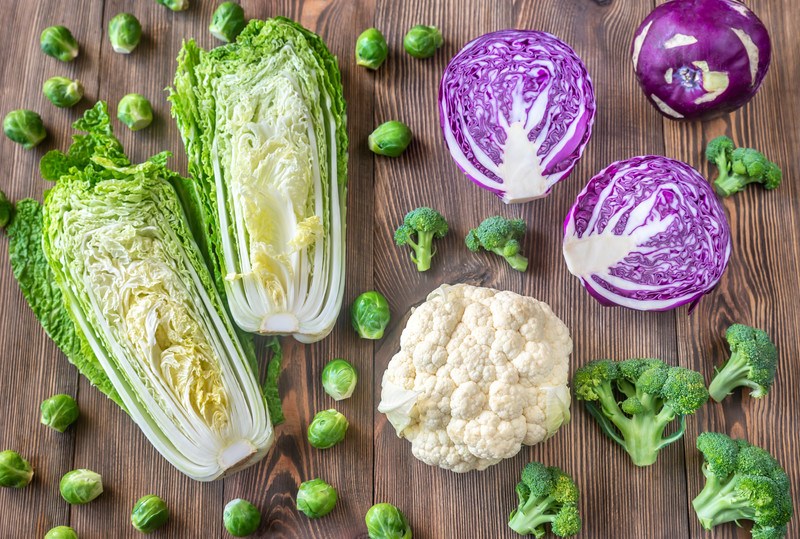
Cruciferous vegetables include cabbage, broccoli, cauliflower, bok choy, kohlrabi, kale, and brussels sprouts, and other veggies in the cabbage family. These foods contain a compound called sulforaphane that has several health benefits.
Some studies indicate that sulforaphane could help improve healing, especially with skin, as well as minimize scarring. Sulforaphane supports healthy cell function and could also help with inflammatory issues.
In addition to sulforaphane, cruciferous vegetables are packed with fiber, vitamins, and minerals that can help bodies heal. For example, a one-cup serving of boiled kale provides 1324% of the recommended daily value for vitamin K, which promotes healing and blood clotting.
Kale also supplies other healing compounds, including significant amounts of vitamins C and A. It also contains 27% of the daily recommendation for manganese, which is important for wound healing and the production of collagen.
Poultry
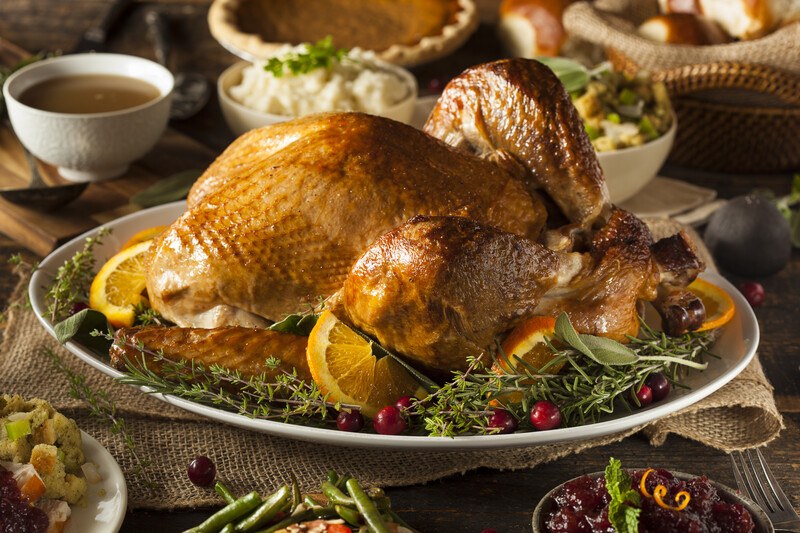
Chicken, turkey, and other poultry could help with healing because they’re high in protein. While all protein helps build up body tissues, some amino acids are particularly helpful. These include arginine, which aids with wound healing and collagen production, and glutamine, which helps protect the cells. Both chicken and turkey contain decent amounts of both those amino acids. One cup of cooked chicken contains around 2.7 grams of arginine.
One cup of chicken also supplies around 30% of the recommended daily value for vitamin B6. This vitamin, also known as pyridoxine, is involved in several enzyme reactions in the body. It also helps promote brain and nervous system health. Chicken also provides iron, calcium, magnesium, and cobalamin, which could help with the early stages of wound healing.
Citrus Fruits
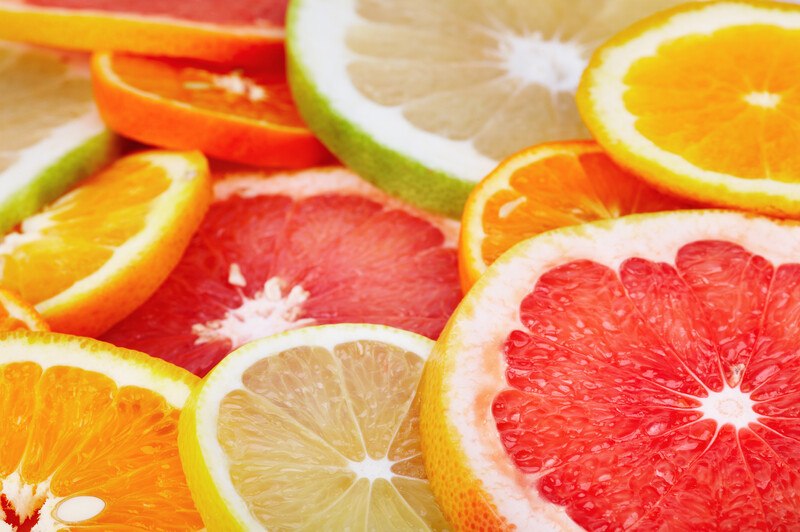
Lemons, limes, oranges, grapefruits, and other citrus fruits are rich in vitamin C. Vitamin C is well known for several health benefits, including its antioxidant properties and its ability to help lower blood pressure.
Vitamin C plays an important role in the health of all body tissues, and that includes healing from surgery. Vitamin C is involved in all aspects of wound healing, from helping to control inflammation to supporting the production of collagen so that skin can heal properly.
Oranges are one of the best-known fruits for providing vitamin C, with one orange containing around 85% of the recommended daily intake. One lemon supplies around 51% of the daily recommendation, and lime contains 32%. Half a grapefruit provides around 64%, but grapefruit can interact with some medications, so it’s best to use it under a physician’s advice if you’re healing from surgery.
Leafy Green Vegetables
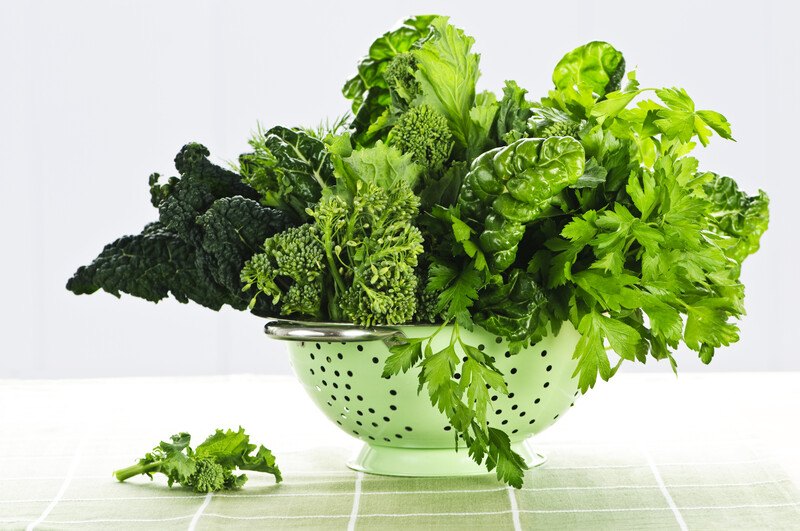
Leafy green vegetables such as spinach, kale, Swiss chard, and mustard greens are great sources of several vitamins and minerals that can help a body heal from surgery. One of the key compounds they contain is vitamin E, which helps control inflammation.
Half a cup of cooked spinach provides around 2 mg of vitamin E, while a cup of raw Kale provides 1.9 mg. These foods are also high in vitamin K, which helps promote proper blood clotting, and they’re a great source of vitamin C and folate. Folate is important for the growth and development of all body tissues, and supplementing with it can stimulate the healing of wounds.
Beans
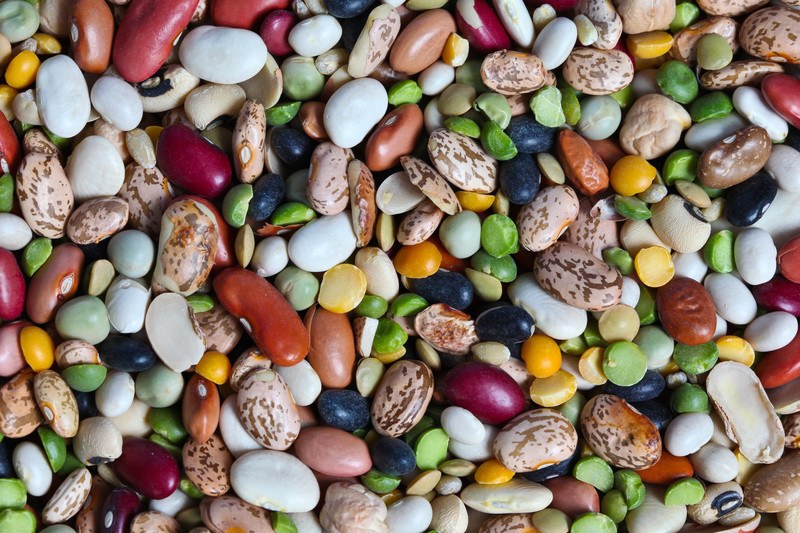
Beans are a nutrient-dense food that contains high amounts of both protein and fiber. The fiber can act as a prebiotic, which increases the healthy flora in your gut. This is important because having a healthy digestive microbiome improves healing. At the same time, the protein found in beans, lentils, and other legumes helps provide the building blocks needed to build and repair body tissues.
Beans are also rich in folate and in zinc. Zinc plays an important role in every part of wound healing, ranging from healing the skin to reducing inflammation and boosting the immune system. A one-half cup serving of baked beans provides 2.9 mg of zinc or around 26% of the daily recommended intake.
A one-cup serving of black beans contains 61% of the daily recommendation for folate, 17% for zinc, and 30% for magnesium. Magnesium is interesting because it could help speed up the wound healing process.
Greek Yogurt
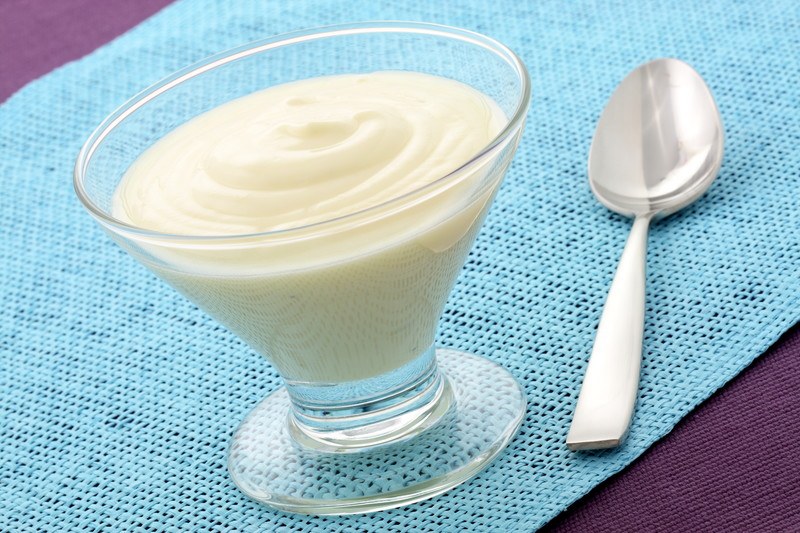
Gut health is important for wound healing, and the probiotics found in Greek yogurt can contribute significantly to a healthy microbiome. Depending on the brand of yogurt, you could be getting a few different types of healthy bacteria, including Lactobacillus acidophilus, Lactobacillus bulgaricus, and Streptococcus thermophilus.
Yogurt is also rich in both protein and zinc, which also help promote wound healing. One 7-ounce container of low-fat Greek yogurt provides 40% of the daily recommendation for protein and 11% for zinc. It’s also a good source of some B vitamins, including folate, and a variety of minerals. Some people suggest that yogurt can be used topically as well as taken internally to help speed up the healing of skin wounds.
Salmon
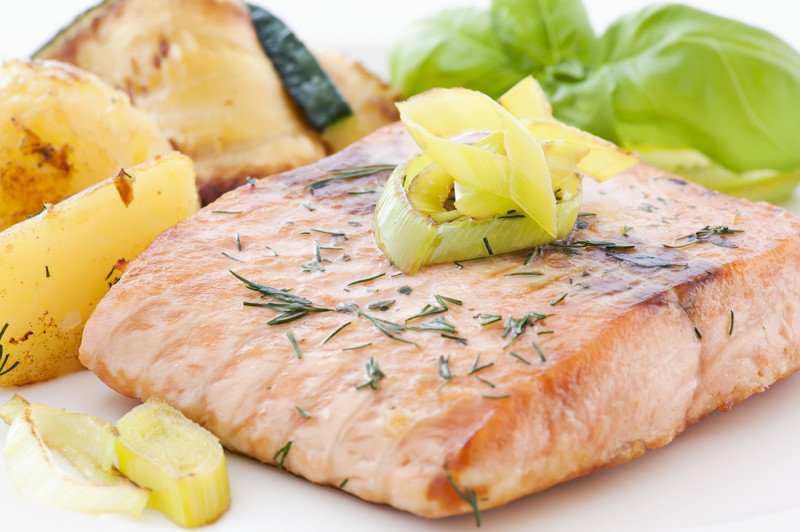
Salmon is a great source of both protein and omega-3 fatty acids, which have several health benefits. The proteins form building blocks for repairing tissue. The omega-3 fatty acids can help keep wounds from getting infected and can improve wound healing in the early stages. After several days, omega-3 fatty acids could slow collagen deposition in healing wounds, so it’s best to eat salmon and other fatty fish soon after surgery or an injury.
A one-cup serving of steamed salmon provides 70% of the recommended daily intake for protein and 0.96 grams of omega-3 fatty acids. It also contains 93% of the daily recommendation for vitamin D and 73% for niacin. Vitamin D is important because a vitamin-D deficiency has been linked to slower healing, and niacin could help repair DNA and increases wound healing.
If you’re interested in salmon mostly for its healthy fats and proteins, you might also be interested in trying other fatty fish, such as sardines, mackerel, or herring.
Kimchi
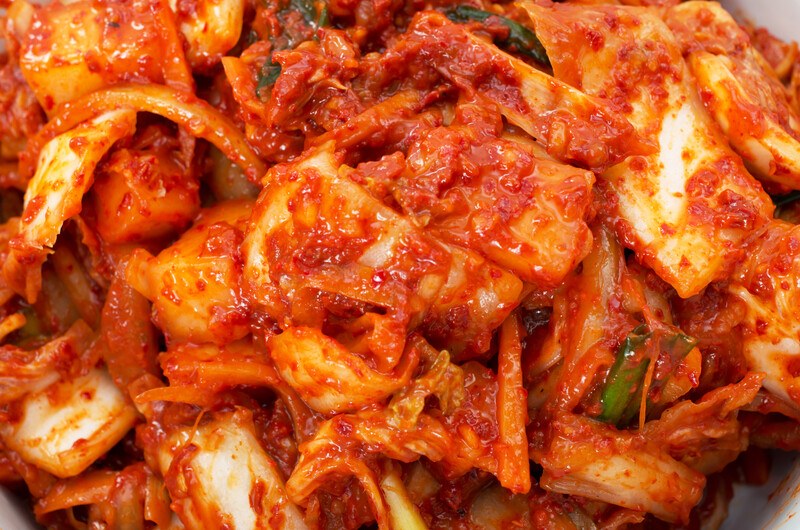
Kimchi is a fermented food that’s made often made from cabbage, radishes, ginger, garlic, and gochu peppers. Like sauerkraut, kimchi is packed with probiotics and fiber that support a healthy microbiome. Ginger and garlic also boost the immune system and could help to heal wounds.
Kimchi has an added benefit because the cabbage it’s made from is a cruciferous vegetable that contains the compound sulforaphane. Besides the nutrients listed above, a one-cup serving of kimchi could also provide 20% of the daily recommended intake for folate, 55% for vitamin K, and 21% for iron. Iron is important because proper healing requires a normal hematocrit.
Berries
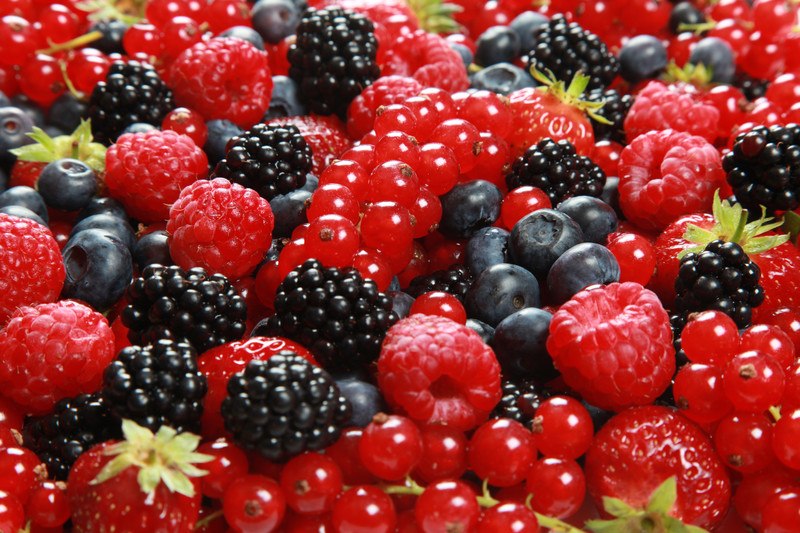
There are a wide variety of berries to choose from, and overall, they’re packed with vitamins, minerals, and phytochemicals that could help promote wound healing.
This includes vitamin C. One cup of halved strawberries contains 99% of the daily recommended value for vitamin C, as well as being a good source of magnesium, potassium, zinc, folate, and vitamin K. A one-cup serving of blueberries contains around 16% of the daily recommendation for vitamin C, while a cupful of fresh raspberries provides 36%.
Besides vitamins and minerals, berries contain compounds that have strong anti-inflammatory properties. Because of this, strawberries and blackberries particularly are associated with healing from ulcers and sores.
Sweet Potatoes
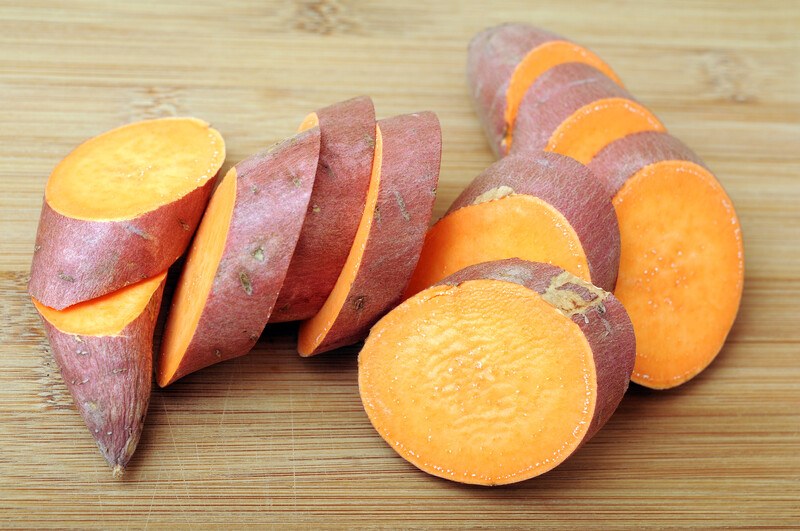
Sweet potatoes are a bright orange food that’s rich in complex carbohydrates. The fiber content is good for building a healthy microbiome, and sweet potatoes are rich in antioxidants that can promote wound healing.
A one-cup serving of raw, cubed sweet potatoes provides 105% of the daily recommended intake for vitamin A, which stimulates the turnover of skin cells to speed up wound healing. It also supplies 21% of the daily recommendation for pantothenic acid. Pantothenic acid has a moisturizing effect and other helpful benefits for the skin which support the healing of surgical wounds.
Sweet potatoes are also a decent source of several other vitamins and minerals, including magnesium, iron, zinc, and vitamin K.
Avocados
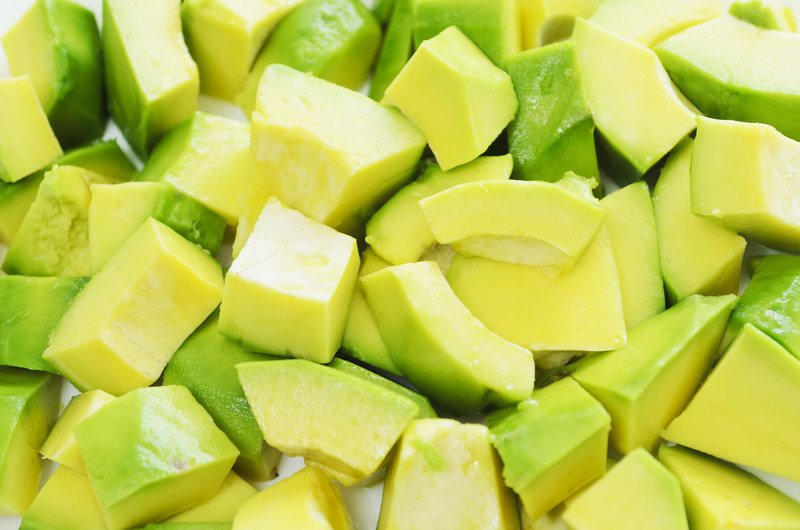
Avocados are rich in several vitamins and minerals, as well as fiber and healthy fats. One cup of mashed avocado provides 15 grams of fiber, or around 54% of the daily recommended intake, as well as 9% of the daily recommendation for protein and 47% for folate.
Avocados are also rich in niacin, riboflavin, vitamin E, vitamin K, magnesium, and zinc.
When it comes to healthy fats, avocados are one of the best vegetable sources available. A one-cup serving provides 165 mg of omega-3 fatty acids, which are helpful for wound healing in the initial stages.
Eggs
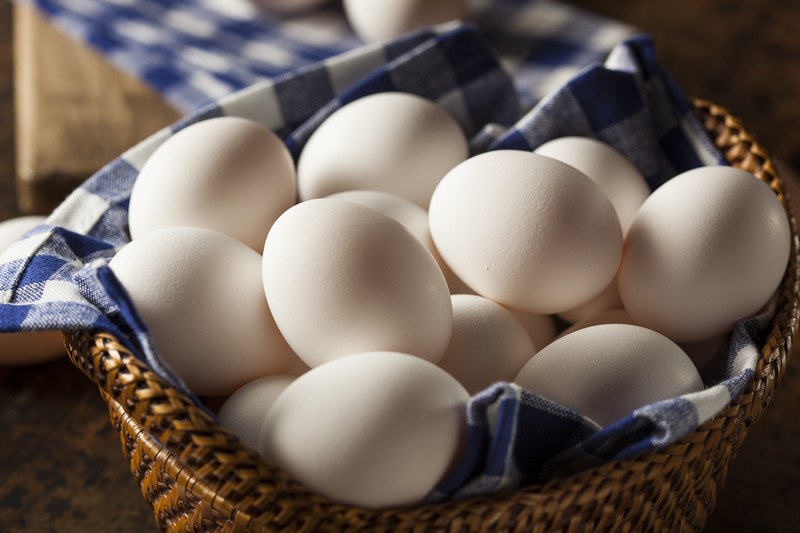
Eggs are packed with nutrients that could help promote wound healing. One egg contains around 14% of the daily recommendation for protein, 5% for vitamin D, 6% for folate, 9% for vitamin A, and 6% for zinc. It’s also a good source for several B vitamins, vitamin E, vitamin K, and trace elements such as manganese and selenium.
Besides containing so many healing properties, eggs are a versatile food. They’re easy to cook as stand-alone meals or mix into other dishes, so they’re great choices for healing foods to include in your post-surgery eating plans.
Three Healing Meals To Try

Now that you’ve read through the list of the 12 best foods for healing after surgery, it’s time to plan ahead for which healing foods you’ll be eating when you get back home. Here are three nutrient-packed meal ideas to get you started:
Idea #1: Salmon With Broccoli And Sweet Potatoes
The salmon in this meal provides a boost of omega-3 fatty acids, which are great for healing in the initial stages. The broccoli contains sulforaphane, which could help with inflammation, and both the broccoli and sweet potatoes provide a wide range of vitamins and minerals that could help your body heal.
Idea #2: Quiche With Berries And Yogurt
A quiche containing eggs, spinach, and garlic could boost your immune system and help you heal quickly. Pairing it with a side of berries and Greek yogurt could provide several antioxidants, vitamins, minerals, and other compounds that could help keep inflammation down.
Idea #3: Refried Black Beans With Riced Cauliflower And Avocado Slices
This meal provides a wide range of nutrients, including protein, fiber, and zinc from the black beans as well as sulforaphane from the riced cauliflower. The avocado slices are rich in several vitamins and minerals and contain omega-3 fatty acids to get your healing off to a great start.

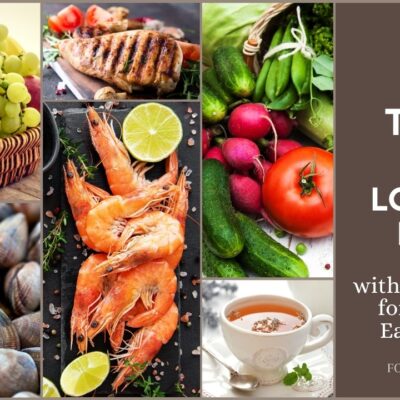
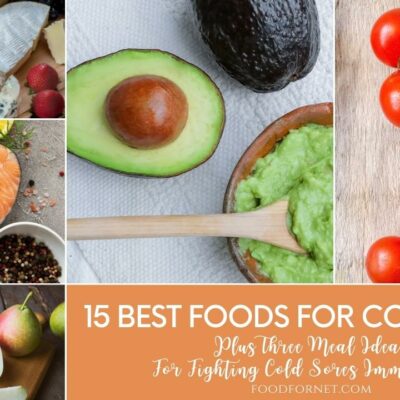

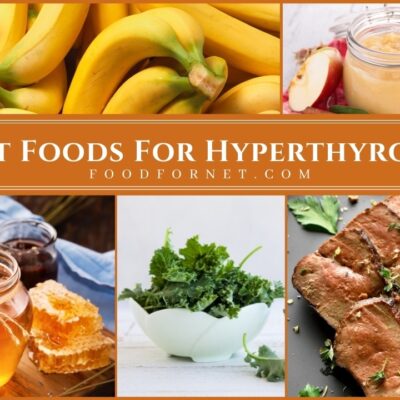

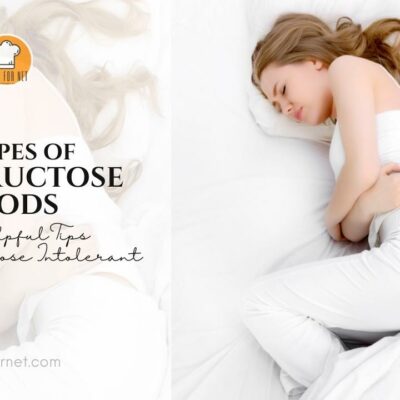
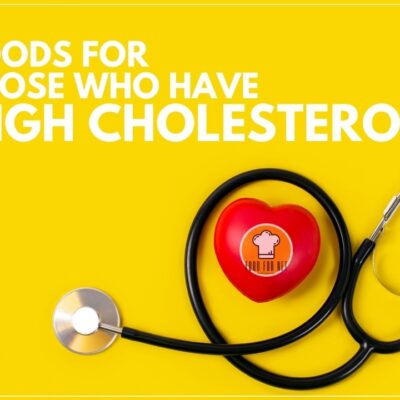
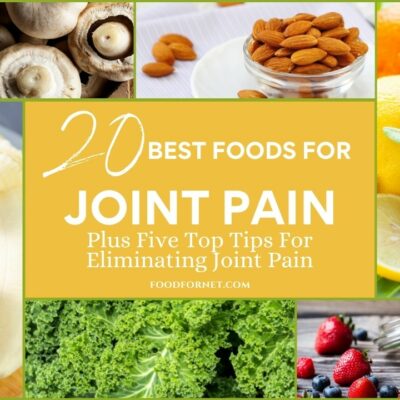
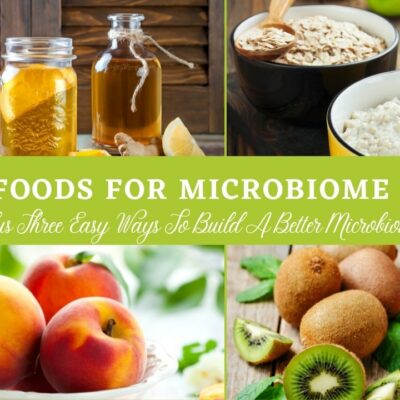
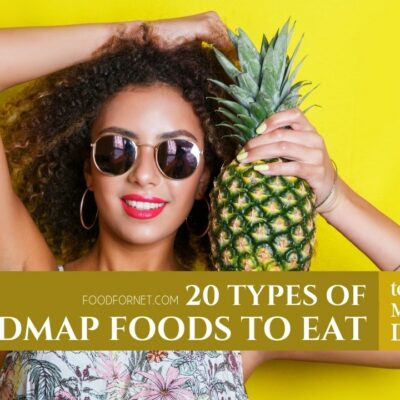
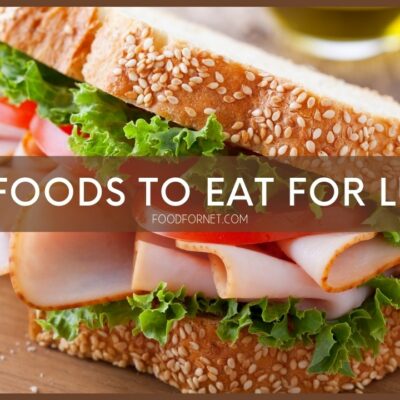
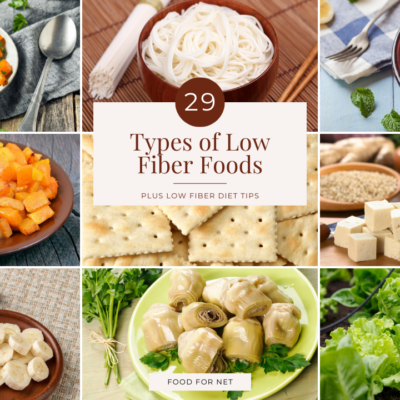
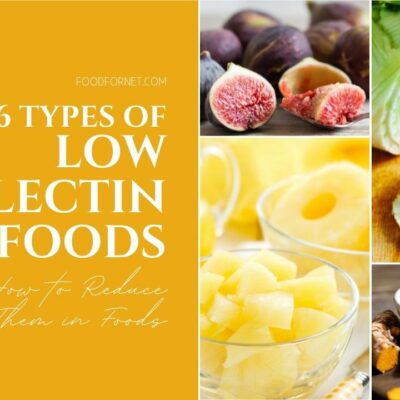
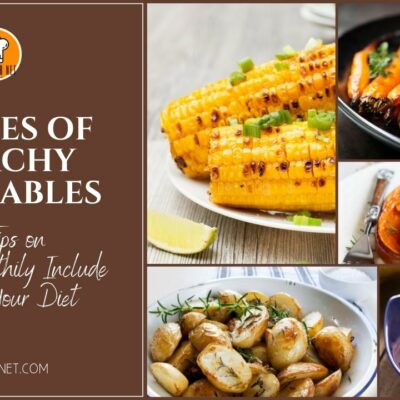
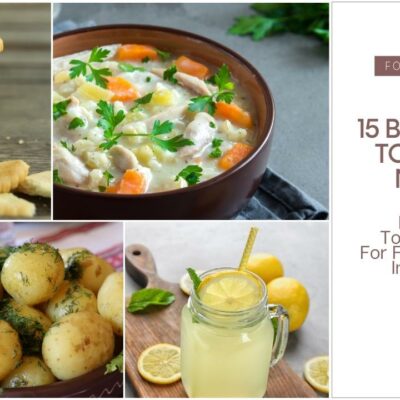

 The Best Blueberry Vodka
The Best Blueberry Vodka
Leave a Reply